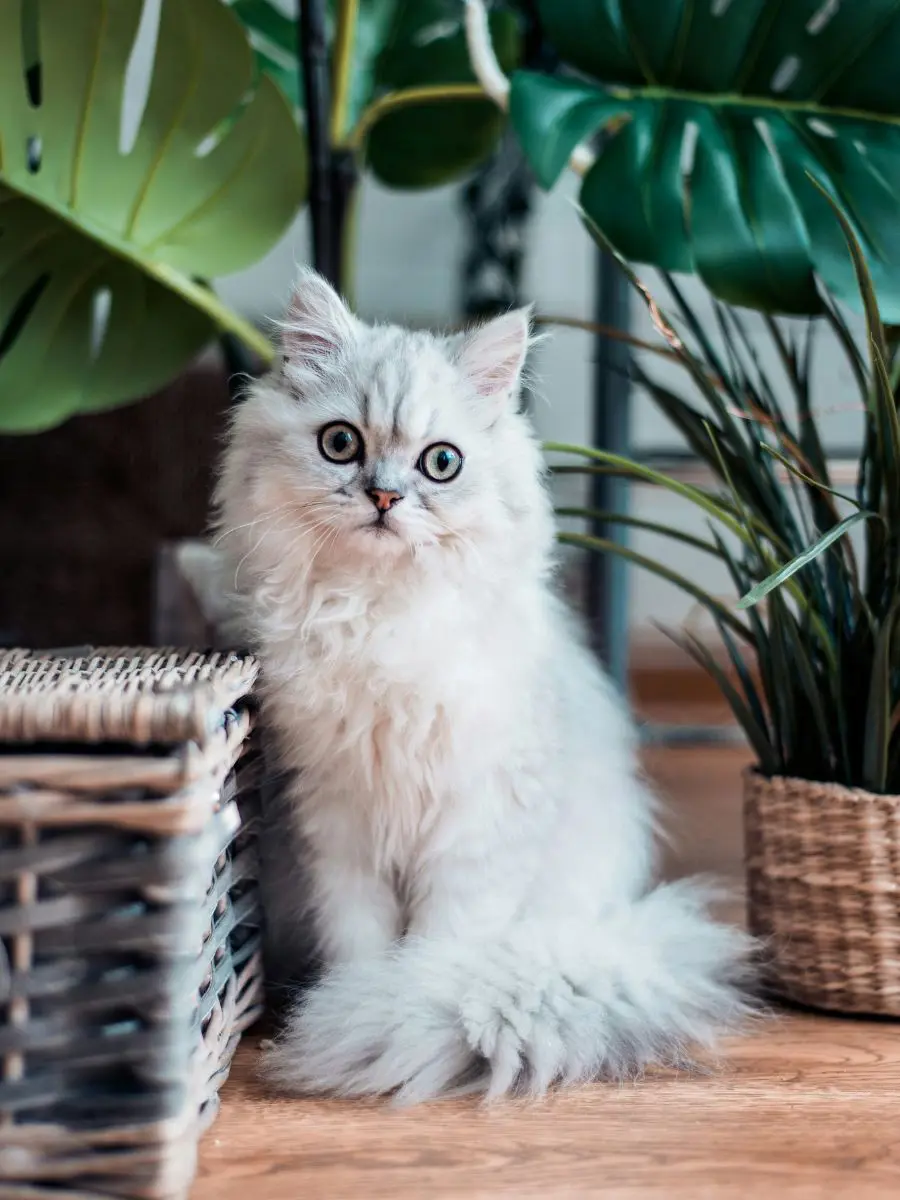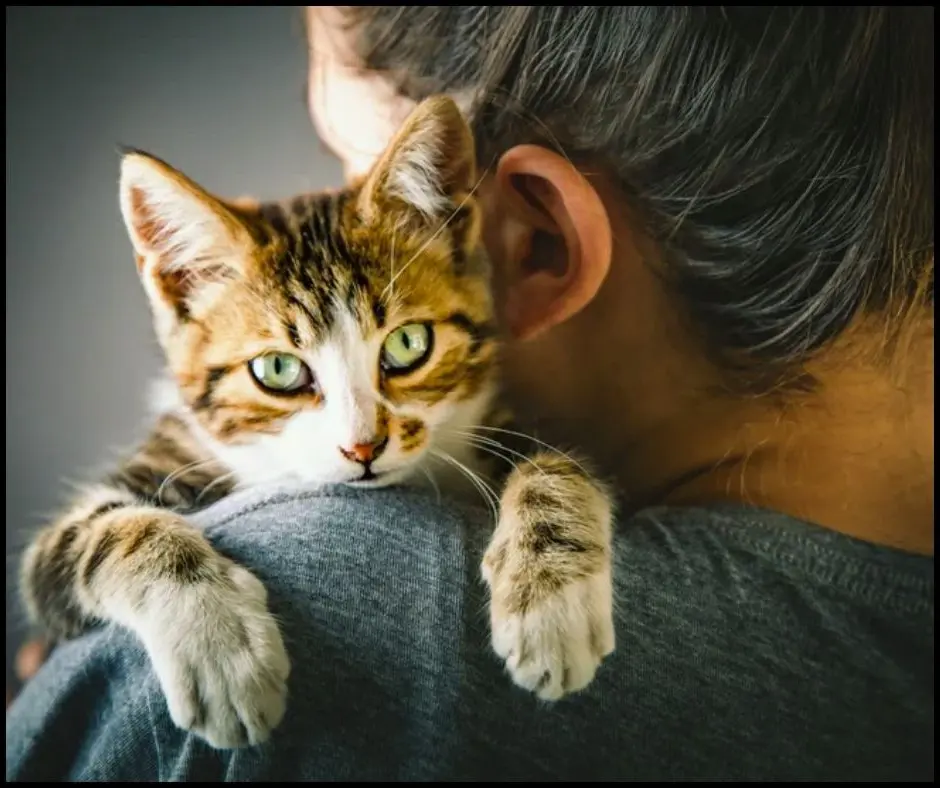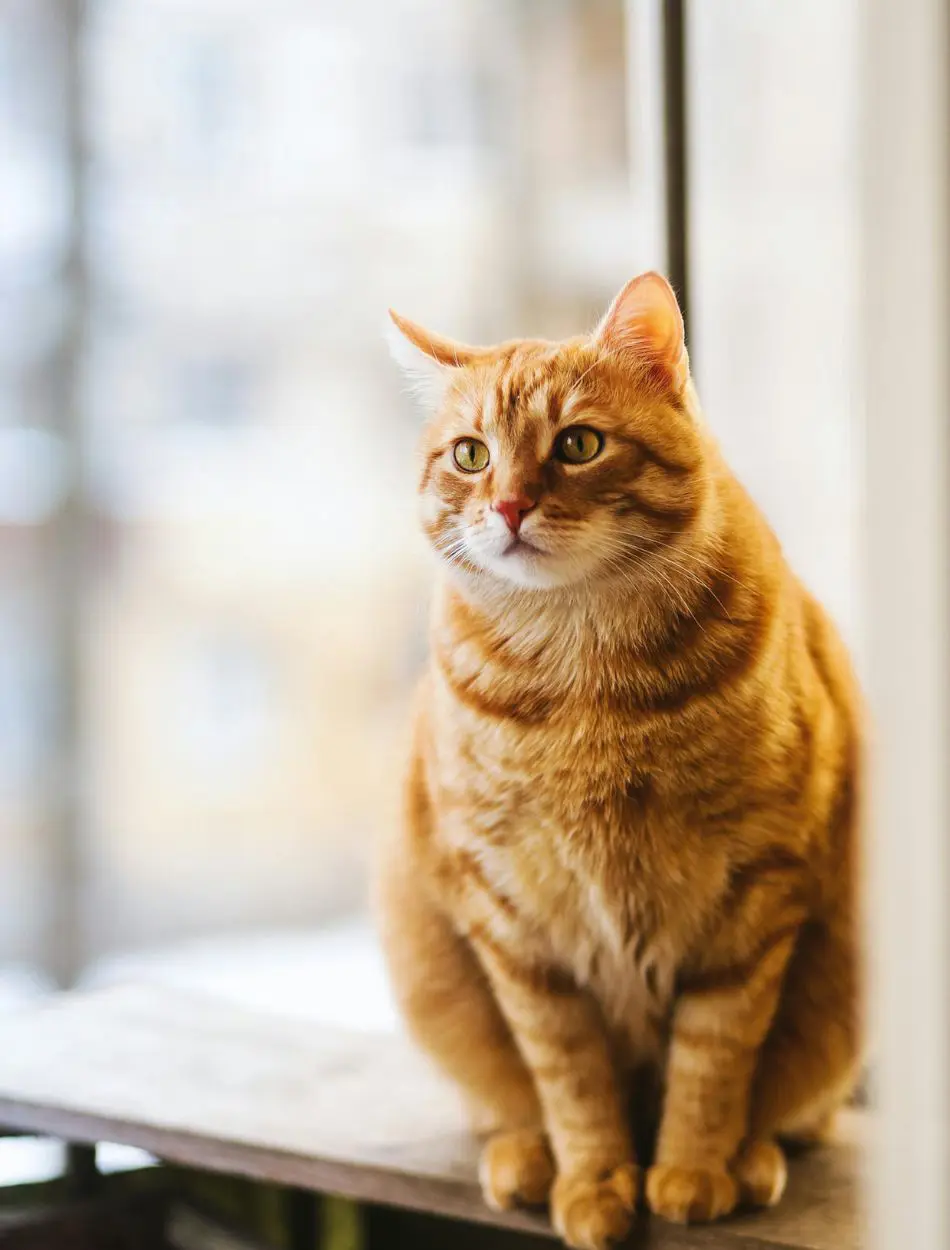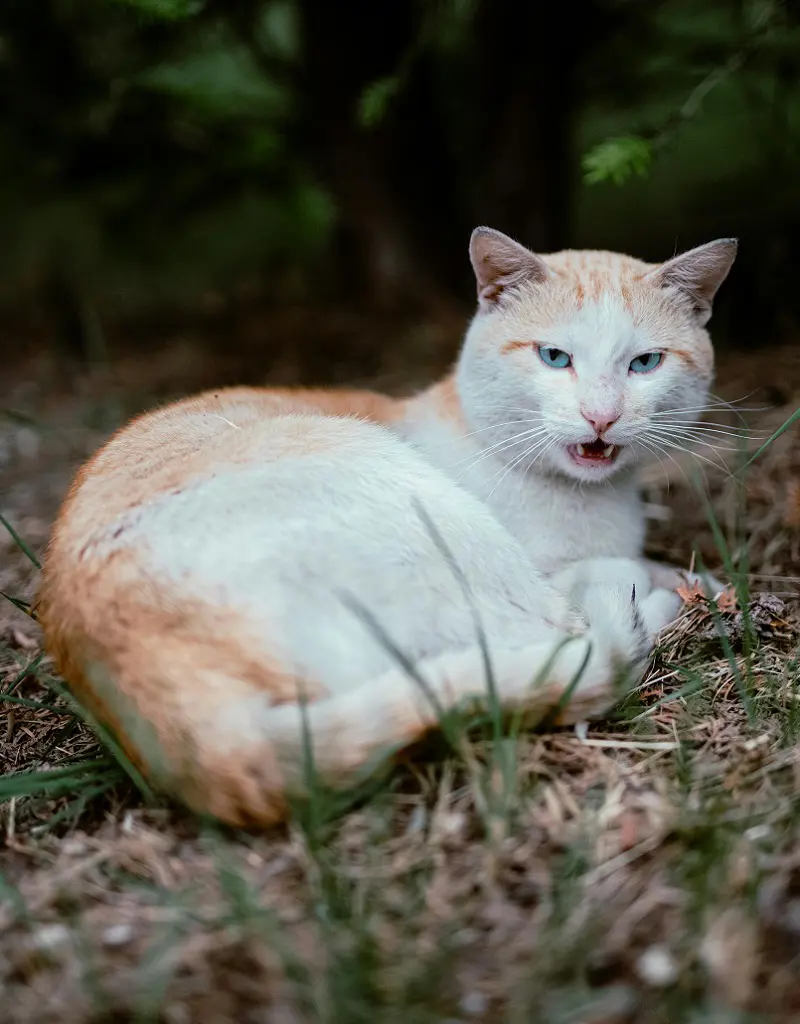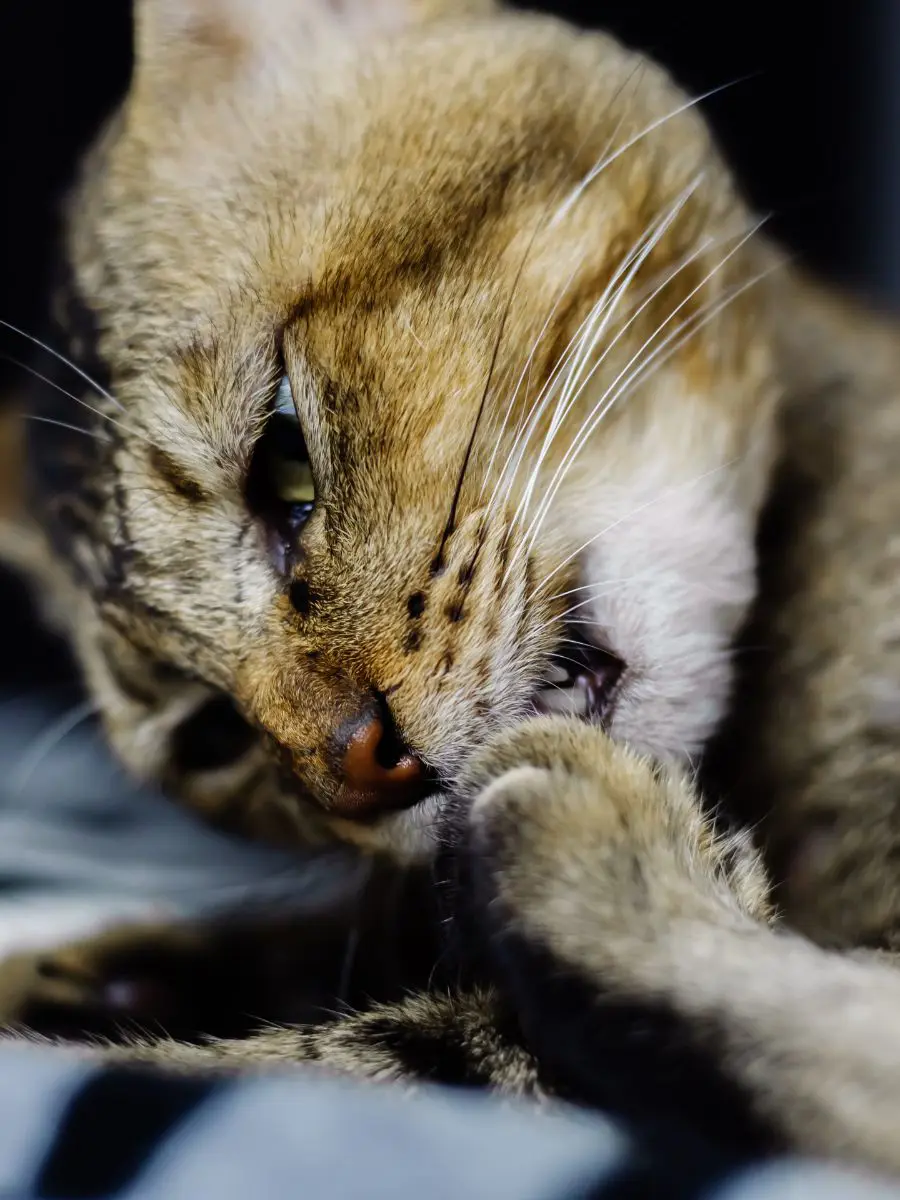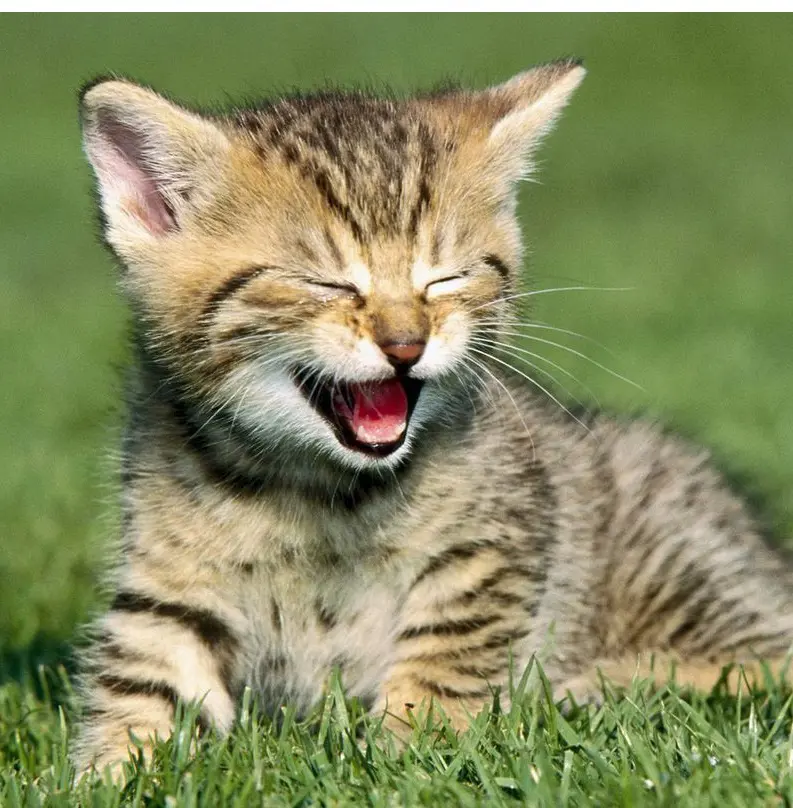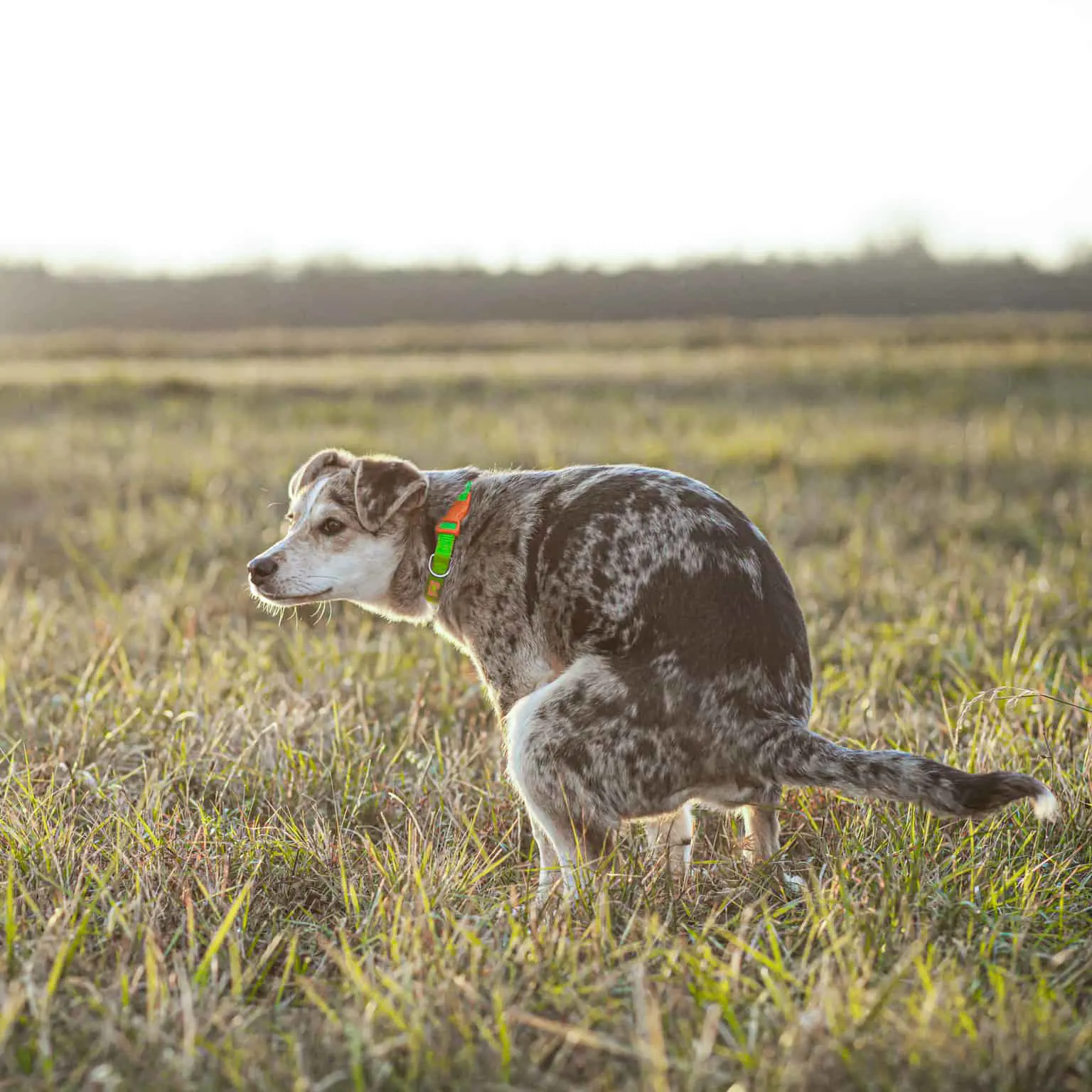Why Is My Cat Breathing Fast? 15 Reasons For This Phenomena
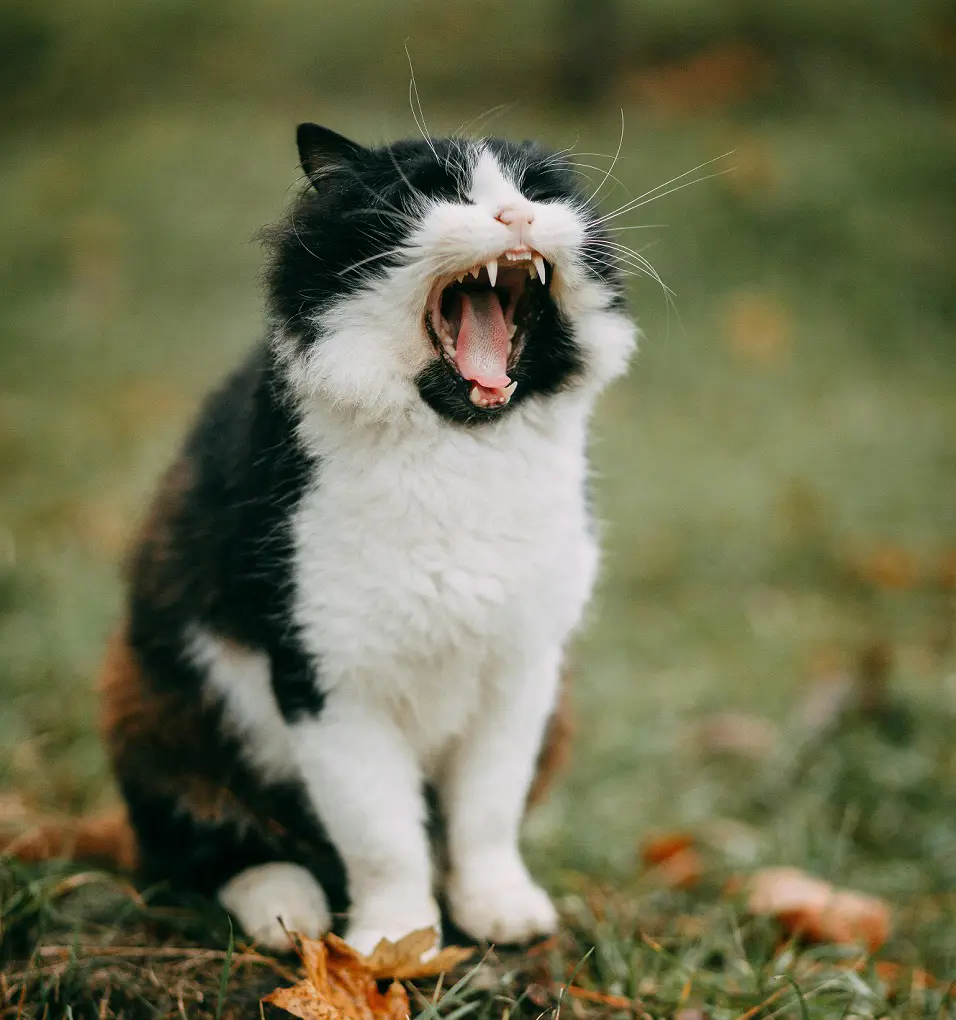
Cat breathing fast, or tachypnea, can be triggered by various factors ranging from benign to serious health issues. Understanding the potential causes and the urgency of the situation is crucial for ensuring your cat's well-being.
Breathing more quickly might be caused by more serious medical conditions such as trauma, anemia, or fluid in the lungs.
It is important to keep an eye out for any more signs that may indicate a medical issue, such as coughing, drowsiness, or a bluish tinge on the gums. To determine the cause and administer the proper care, a prompt veterinarian consultation is necessary to guarantee the health and welfare of the cat.
1. Fear and Anxiety
Fear and anxiety in cats can show up as fast breathing, which is a natural reaction brought on by the fight-or-flight response. Hormonal changes cause a cat to respond to a threat by quickening breathing and heart rate to circulate oxygen-rich blood throughout the body and get ready for defense or escape.
Physical indicators such as stooping, flattened ears, and dilated pupils are frequently present along with this rapid breathing. Prolonged anxiety, albeit usually transient, might cause health issues.
It is advised to see a veterinarian if your cat consistently breathes quickly or displays other worrisome symptoms to treat the underlying worry and guarantee general health.
2. Excitement
Excitation causes cats' adrenaline levels to rise, which might cause them to breathe quickly. Many activities can cause excitement, including playing with toys, locating prey, interacting with people or other animals, and exploring new places.
Their body goes through physiological changes as it gets aroused, such as an increase in heart rate and respiration rate, to get ready for increased activity. The fight-or-flight reaction, as it is commonly called, makes sure that the cat's muscles get more oxygen to meet its energy requirements.
Moreover, as they become more aware and prepared to react to stimuli, an adrenaline spike may force them to breathe more quickly. Providing a cat with opportunities for play and exploration in a secure and exciting setting might help control their level of excitement.
3. Playing Actively
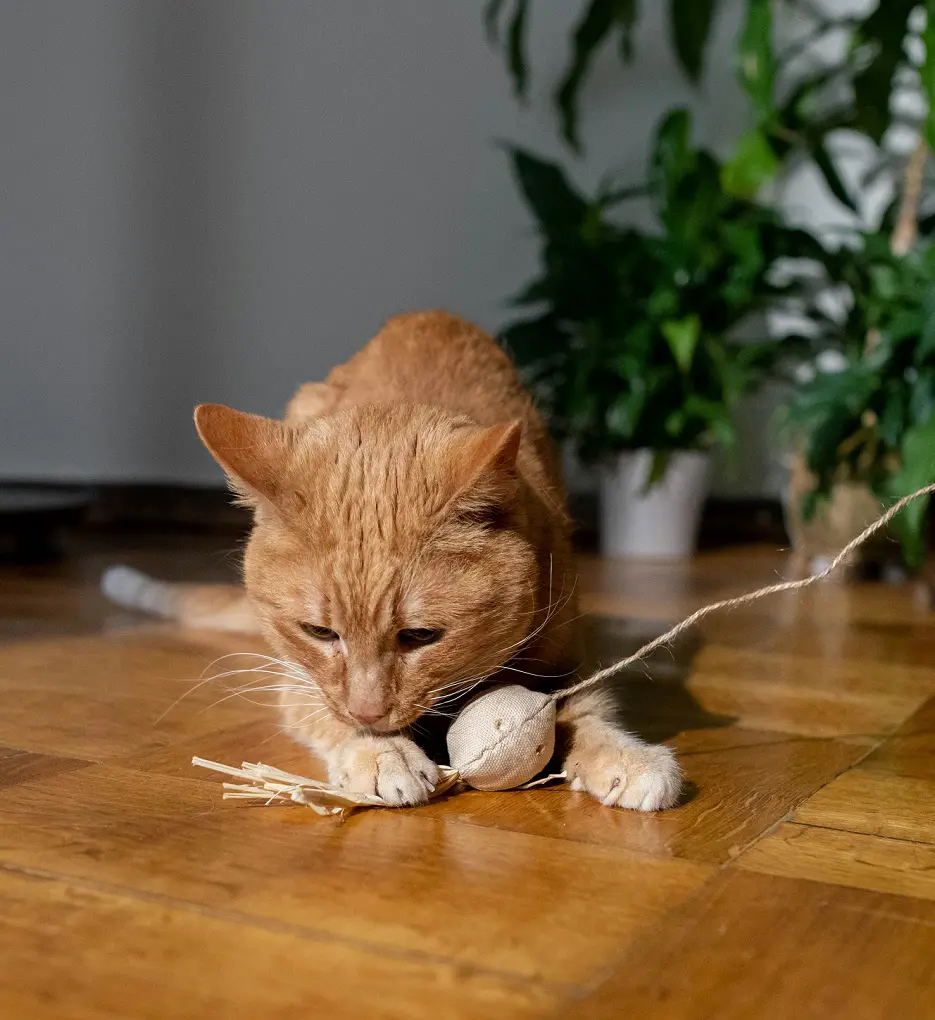
It is common for cats to have a brief rise in breathing rate during vigorous play sessions. This physiological reaction resembles what happens to people when they exercise. Your cat's breathing quickens to release carbon dioxide accumulation and supply oxygen to working muscles, just as ours does.
Considering that cats don't have sweat glands to produce external cooling, this quick breathing aids in controlling body temperature. In addition to facilitating the intake of new oxygen and the discharge of stale air, the extra breaths maximize energy generation for prolonged playtime.
4. High Temperatures
Feline panting is a common reaction to high temperatures and is signified by fast, open-mouth breathing. For the most part, cats use panting to release heat, as opposed to humans who sweat to cool themselves.
Breathing more deeply during hot weather promotes evaporation of fluid from the respiratory tract and tongue, which has a cooling effect. Cats need this physiological adaption to keep their body temperature within a healthy range.
Still, panting may not be enough if the temperature is too high, which could result in heatstroke. To support your cat's natural thermoregulation processes during hot weather, make sure they have access to cool spots and fresh water.
5. New Environments
When cats are in unfamiliar surroundings, they frequently breathe quickly, which is a normal reaction brought on by worry and anxiety. Due to their habitual nature, cats may find this new area intimidating.
Their body is supplying oxygen to deal with the perceived threat through an accelerated respiratory rate, priming them for a fight-or-flight response. Your cat should gradually resume its regular breathing pattern as they become comfortable and accustomed to the new environment.
Providing a comfortable hiding place, such as a box with a familiar blanket inside or a covered carrier, can establish a sanctuary to reduce tension and encourage relaxation.
6. Loud Noises

Stressful environments, such as loud noises, can cause a cat's respiratory rate to increase. Breathing quickly is a normal fight-or-flight reaction as your cat's body is better equipped to defend itself or make an escape due to their faster respiratory rate, which also increases oxygen intake.
Adrenaline and cortisol are released when the sympathetic nervous system is stimulated by loud stimuli. These hormones prime the body for action by quickening breathing and heart rate. Your cat's respiration should gradually return to normal as they calm down once the noise stops.
But, if the loud noises continue or your cat shows other symptoms of worry, giving them a quiet hiding place or taking them out of the environment will help reduce stress and encourage relaxation.
7. Overexertion
Like us, cats' breathing rates go up after their physical or mental effort. Tachypnea is a physiological reaction that enables your cat to effectively take in oxygen and release carbon dioxide, which are waste products of burning energy while they exercise.
Similar to how you might breathe hard after an intense run, your cat's fast breathing aids in the return of oxygen levels to normal bodily processes. This is a transient occurrence, and your cat's breathing should eventually return to normal as they sleep.
A veterinarian should be consulted, if the rapid breathing continues even after a prolonged period of rest or if it is accompanied by other worrisome signs.
8. Encountering Other Animals
Cats may breathe more quickly after interacting with another cat because of a mix of behavioral and physiological reactions. The fight-or-flight response can be triggered by the sight, smell, or sound of another animal, especially one that is thought to be a predator.
To get ready for an escape or confrontation, this evolutionary response spikes adrenaline and increases heart rate and breathing. Furthermore, the psychological strain of a territorial dispute or social engagement might increase heart rate.
Even though it's usually fleeting, your cat's fast breathing helps it meet the demands of the moment. Breathing should return to normal in a matter of minutes if the stressor is eliminated.
9. Traveling in a Carrier

Cats that are kept in carriers while traveling frequently breathe quickly. Being confined in a carrier limits their movement and control, which exacerbates their uneasiness as this is a typical physiological reaction to the stress of a novel and possibly terrifying situation.
Likewise, some cats get motion sickness when traveling, which makes their breathing faster. Fortunately, once the travel is over and they have had time to adjust to their new environment, these symptoms usually go away.
Make sure the carrier is a cozy place with familiar smells for your cat before the trip to reduce anxiety and keep the carrier in a calm, well-ventilated place when traveling, and steer clear of abrupt movements.
10. Visiting the Vet
During a visit to the veterinarian, a cat's rapid breathing is frequently caused by worry and anxiety stemming from the unknown and potentially frightening surroundings. For a cat, the unfamiliar sights, sounds, and smells of the vet's office can be overpowering and increase anxiety levels.
Cats experience a rise in heart rate and fast breathing as a result of this stress response, which triggers the sympathetic nervous system, also referred to as the "fight or flight" response. The trip to and from the veterinarian, which involves putting the cat in a carrier and exposing it to car motion, can also greatly increase the cat's stress levels.
Excessive stress might show up as breathing quickly and shallowly, panting, and hyperventilating. Pet owners need to discuss their cat's nervousness with their veterinarian, even if this reaction is usually just momentary and goes away as the cat is back in a comfortable and familiar setting.
11. Lack of Rest
Cats that do not get enough sleep or relaxation may breathe quickly since their bodies require it to function normally. Cats need 12 to 16 hours of sleep every day, and not getting enough sleep can make them more stressed out and physically exhausted.
A cat's body may attempt to compensate for an increased need for oxygen by boosting its respiratory rate when it is not getting enough sleep. When a cat doesn't get enough sleep, their muscles and organs may have to work harder to function.
Hence, sleep deprivation can increase worry and agitation, which worsens rapid breathing. Cats may not obtain enough sleep due to environmental issues like loud noises, frequent disruptions, or uncomfortable sleeping areas.
12. Climbing
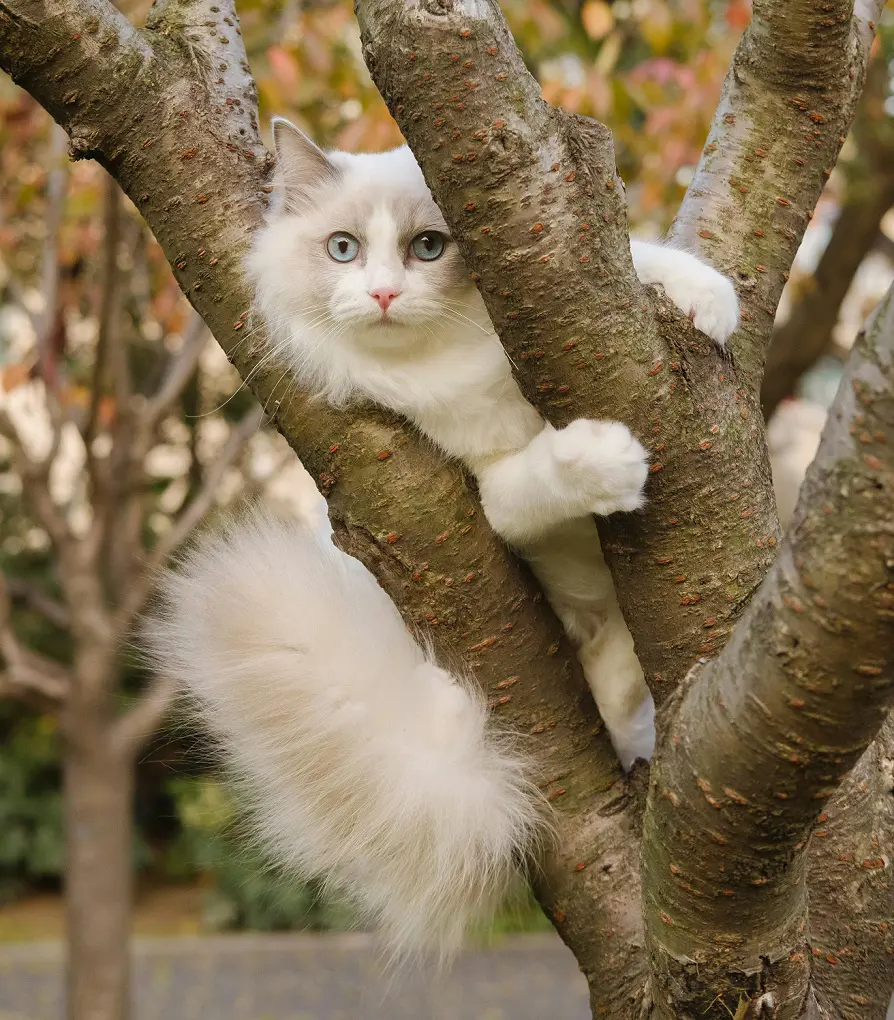
Exertion on the part of cats, especially climbing, might cause an elevation in respiratory rate. This quick breathing is a normal physiological reaction. Climbing works different muscle groups, which means you need to take in more oxygen.
To make up for this, the lungs expand the depth and velocity of breathing to effectively distribute oxygenated blood throughout the body. Climbing also tends to modestly raise body temperature. The cat's pants allow for quick exhalations that promote evaporative cooling to maintain thermal equilibrium.
Quite immediately as the climbing activity stops, respiration should return to normal. However, extra attention or veterinarian consultation may be necessary if the rapid breathing lasts longer than a normal recovery interval or if it is accompanied by lethargy, coughing, or strange vocalizations.
13. Jumping Around
Cats' breathing increases naturally while they are jumping around and exerting themselves. Cats' bodies need extra oxygen when they play or jump about, much like human bodies do. This quick breathing is a typical physiological reaction, and it's frequently accompanied by a small panting sound.
It makes it possible for the lungs to function harder, taking in more oxygen and releasing carbon dioxide to keep up with the higher energy requirements of exercise. A cat's respiratory rate will return to normal after activity stops and their body enters a resting state, just like runners do during a race.
Similarly, play-related excitement may also be a factor in a brief increase in breathing rate. Therefore, don't worry if your cat starts breathing quickly after an outburst of playfulness. It's just their body's method of making sure they get the most oxygen possible to play at their best.
14. Changes in Routine
Since cats are creatures of habit, changes to their well-established habits might cause anxiety in them. Breathing quickly is one physical way that anxiety can show up as travel, new furniture, strange people, and schedule changes related to eating and playtime can all be interpreted as threats.
The body reacts by releasing stress hormones, which quickens breathing to enhance oxygen intake and get ready for possible fight-or-flight situations. Breathing usually returns to normal after the cat settles into a new routine or the perceived threat passes.
To make sure your feline buddy feels comfortable and secure in their surroundings, it's crucial to locate and treat the source of the worry if the rapid breathing continues.
15. Intense Curiosity

Quick breathing is a sign of feline eagerness, especially in times of great curiosity. The sympathetic nervous system, which speeds up breathing and pulse rate to prime the body for action, causes this physiological reaction.
Like people who experience adrenaline during an exciting moment, cats breathe quickly to sharpen their senses, boost their oxygen intake in case they strain themselves, and prime their muscles in case they are pursued or need to flee. Usually fleeting, this rapid breathing stops as soon as the source of curiosity is examined or the threat is no longer recognized.
But, if the fast breathing lasts longer than the excitement subsides, it may be a sign of an underlying medical issue that has to be evaluated by a vet. Other characteristics such as dilated pupils, flattened ears, wide eyes, or a hunched posture can help demonstrate that the reason is pure feline curiosity.
Recent posts
Cats
Why Do Cats Eat Grass?
Eating grass is a common behavior observed among domestic cats, sparking curiosity and speculation among pet owners and veterinarians alike. Observations suggest that even well-fed cats with no apparent nutritional deficiencies engage in this habit, ...
Cat Years To Human Years Age Chart
Understanding how old your cats are compared to humans is essential for properly caring for them. You might have heard that one cat year is like seven human years, but it's not simple. Cats grow and age differently than we do, so we need a better way...
18 Common Signs Your Cat Is In Pain
Cats are stoic animals, and most of the time, they mask any type of pain until it becomes too much to bear. In many ways, being a responsible pet owner encompasses the ability to recognize the unseen signs that your feline friend is in pain. Knowing ...
18 Reasons Why Cats Hiss & How To Stop The Behavior
Cat hissing is a distinctive behavior that often surprises and intrigues those who witness it. The sound, a sharp and sudden exhalation, is accompanied by a variety of physical cues. If your cats are hissing often or for a longer time, you should pay...
18 Reasons Why Cats Are Itching So Much
Cat itching refers to the impact that elicits a cat to scrap, bite, or lick its skin unnecessarily. The condition can be obvious for several reasons, extending from outermost factors like parasites to internal health issues. Skin infestation, b...
20 Cat Jokes That Are The Purrfect Antidote To A Ruff Day
Funny cat jokes have a universal appeal that transcends age, culture, and background. The inherent humor in cat-related anecdotes and puns often lies in the quirky behavior and unpredictable antics of these adorable feline companions. These catchy on...
